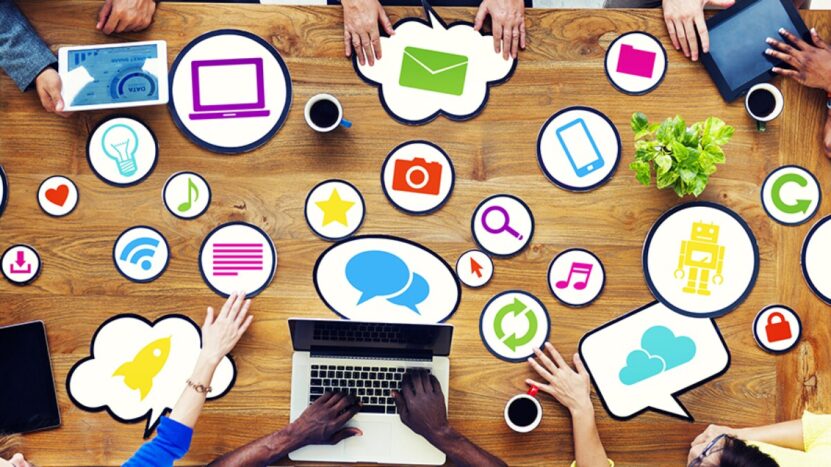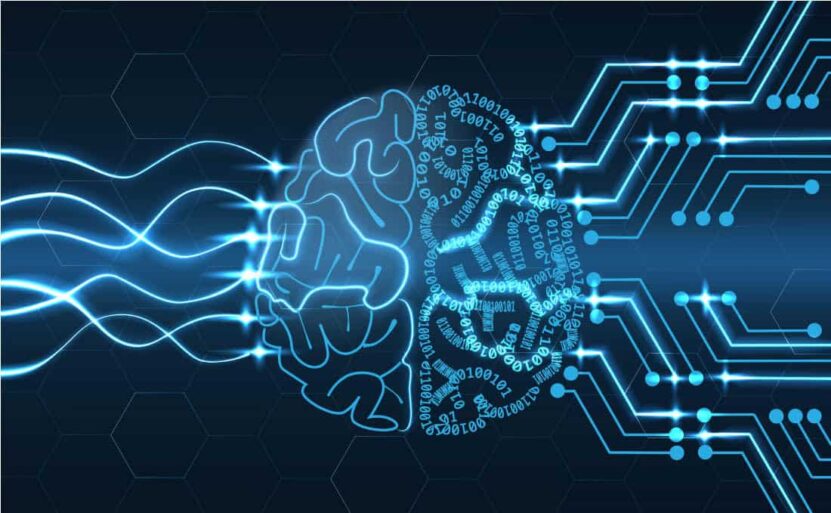As technology continues to advance at a rapid pace, it is crucial to understand its potential effects on human intelligence. Technology has become an integral part of our daily lives, influencing our cognitive abilities in various ways. In this article, we will explore five examples of how technology impacts intelligence, without drawing any conclusions, but instead inviting readers to contemplate the complex relationship between technology and the human mind.
1. Information Overload: Navigating a Sea of Data
The internet has made an incredible amount of information readily available at our fingertips. While this accessibility has undeniable benefits, it can also lead to information overload, causing difficulties in processing and retaining information. As individuals are constantly bombarded with information, it becomes increasingly challenging to discern relevant and reliable sources, potentially impacting critical thinking and decision-making abilities.
2. Digital Distractions: The Battle for Attention

The modern digital landscape is riddled with distractions. Social media, online gaming, and streaming platforms all compete for our attention, leading to a decrease in focus and concentration. The constant barrage of notifications and stimuli may hinder our ability to engage in deep, reflective thought, which is essential for complex problem-solving and abstract reasoning.
3. The Google Effect: The Shift in Memory Processes
Technology has undoubtedly transformed the way we store and retrieve information. The phenomenon known as the “Google effect” suggests that people are more likely to remember where to find information rather than the information itself. This reliance on external sources of information, such as search engines, may have implications for our memory processes, as our brains adapt to a new method of storing and accessing knowledge.
4. Online Collaboration: A New Era of Collective Intelligence
One positive aspect of technology’s impact on intelligence is the facilitation of online collaboration. Platforms like Google Docs, Trello, and Slack have made it easier for individuals to work together and share ideas, fostering the growth of collective intelligence. By working together to solve complex problems, people can benefit from diverse perspectives and experiences, ultimately enhancing their cognitive abilities.
5. Brain Training Apps: The Promise of Cognitive Enhancement

In recent years, brain training apps, such as Lumosity and Peak, have gained popularity, claiming to improve various cognitive functions, including memory, attention, and problem-solving. While the effectiveness of these apps is still a topic of debate, they demonstrate society’s growing interest in harnessing technology to enhance cognitive abilities. Those interested in assessing their IQ level can visit IQ- Global- Test for an initial evaluation of one’s intelligence level. By understanding our intellectual strengths and weaknesses, we can make more informed choices about the cognitive tools and techniques that will benefit us the most.
The relationship between technology and intelligence is a complex and multifaceted one. As we have seen through these examples, technology can both support and hinder cognitive development in various ways. By examining the diverse ways technology impacts our cognitive abilities, we can better understand the evolving landscape of human intelligence and work towards harnessing the power of technology to foster cognitive growth.
6. Augmented and Virtual Reality: Expanding Learning Horizons
Augmented and virtual reality (AR/VR) technologies are redefining the way we learn and interact with information. These immersive tools have the potential to enhance cognitive abilities by providing more engaging, hands-on experiences. For instance, AR/VR applications can be used to simulate real-world scenarios, allowing learners to practice problem-solving and decision-making skills in a safe and controlled environment. This new dimension of experiential learning may contribute to a more profound understanding of complex concepts and improved retention of knowledge.
7. Artificial Intelligence: The Intersection of Human and Machine Intelligence

Artificial intelligence (AI) has rapidly evolved, resulting in machines that can perform tasks that previously required human intelligence. While AI systems can process vast amounts of data and execute complex algorithms, they also present an opportunity for humans to learn from and collaborate with these intelligent machines. By leveraging AI’s capabilities, we can enhance our own problem-solving skills, creativity, and decision-making abilities. The synergy between human and machine intelligence holds promise for a future where technology serves as a powerful ally in cognitive development.
8. Digital Literacy: A New Cognitive Skill Set
As technology becomes increasingly integrated into our lives, digital literacy has emerged as an essential cognitive skill. Digital literacy encompasses the ability to navigate, evaluate, and create information using digital devices and platforms effectively. In a technology-driven world, individuals with strong digital literacy skills are better equipped to adapt and thrive. By developing these skills, people can maximize the benefits of technology and mitigate potential adverse effects on cognitive abilities.
9. E-learning Platforms: Personalized Learning Experiences
Advancements in technology have given rise to a wide array of e-learning platforms, such as Khan Academy, Coursera, and Udacity. These platforms offer personalized learning experiences, enabling users to learn at their own pace and focus on subjects that interest them. This level of customization can lead to more effective learning, as individuals can tailor their educational experiences to their unique learning styles and preferences. As a result, e-learning platforms have the potential to boost cognitive abilities by providing more engaging and relevant learning opportunities.
10. The Role of Sleep in Cognitive Health: The Dark Side of Technology

The impact of technology on sleep is another important aspect to consider when discussing its effects on intelligence. Research has shown that the blue light emitted by screens on smartphones, tablets, and computers can disrupt our natural sleep patterns, potentially leading to sleep deprivation. Poor sleep quality has been linked to decreased cognitive functioning, including impaired memory, attention, and decision-making. By being mindful of our technology usage, especially during the evening hours, we can work towards preserving our cognitive health and maintaining optimal brain function.
In conclusion, the relationship between technology and intelligence is intricate and multifaceted, with both positive and negative implications. By examining these various aspects, we can strive to harness the power of technology to support cognitive growth while minimizing potential drawbacks. As we continue to navigate the rapidly evolving digital landscape, it is essential to remain vigilant about the ways technology impacts our cognitive abilities and adapt accordingly to promote a healthy and balanced relationship with the digital world.
